Editor’s Note
Remembering Rod Severino, 27 April 1936 – 19 April 2019
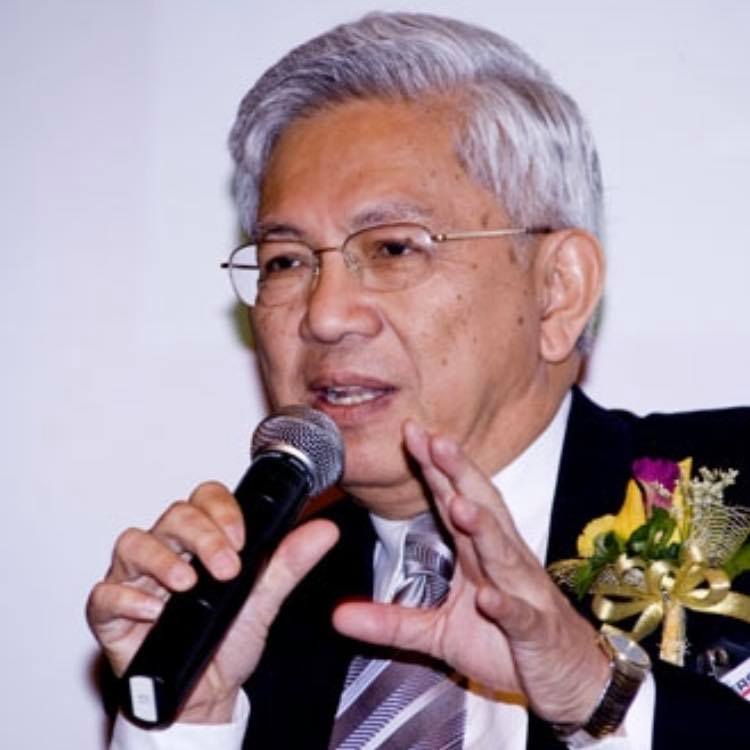
He would have celebrated his 83rd birthday last April 27. But Rodolfo C. Severino, Jr. passed away on April 19. He will be sorely missed.
He was “Usec. Sev” or “RCS” to me when I first had the opportunity to work under him in the mid-nineties at the Department of Foreign Affairs. Those were exciting years. China’s occupation of Panganiban Reef had just been discovered by Filipino fishermen, and RCS was in charge. Inter-agency meetings were convened to help strategize reaction to China. A “script” was developed in preparation for the first occasion in 1995 when the two countries were to sit together to discuss the brewing tensions. The preparations involved an inter-agency simulation exercise of the negotiations. Months later, under his watch, Manila and Beijing would hold bilateral talks that eventually resulted in the first code of conduct in the South China Sea,.
What had first struck me about RCS was his openness to ideas from various competing sources and his trust in his young officers. At one of the formal meetings I attended with him, I recall watching a junior diplomat (who is now an ambassador) sit in a corner typing away the draft outcome document of the negotiations even before the talks began. That, to me, somehow showed purpose and intention. This was no simple academic exercise; we knew the results we wanted, and we wanted them on that document.
News & Events
Experts on the BIMP-EAGA highlight recent developments, enhanced cooperation in hopes of revival
The Asia Pacific Pathways to Progress Foundation Inc. hosted a roundtable discussion on the Brunei-Indonesia-Malaysia-Philippines East ASEAN Growth Area (BIMP-EAGA) which aimed to evaluate the opportunities and challenges in reviving the sub-regional growth triangle as part of the cooperation efforts between China and selected ASEAN countries. The subregional linkages have assumed added relevance in the framework of China’s Belt and Road Initiative, ASEAN economic integration and connectivity plans, as well as expected progress in the establishment of the Bangsamoro autonomous region.
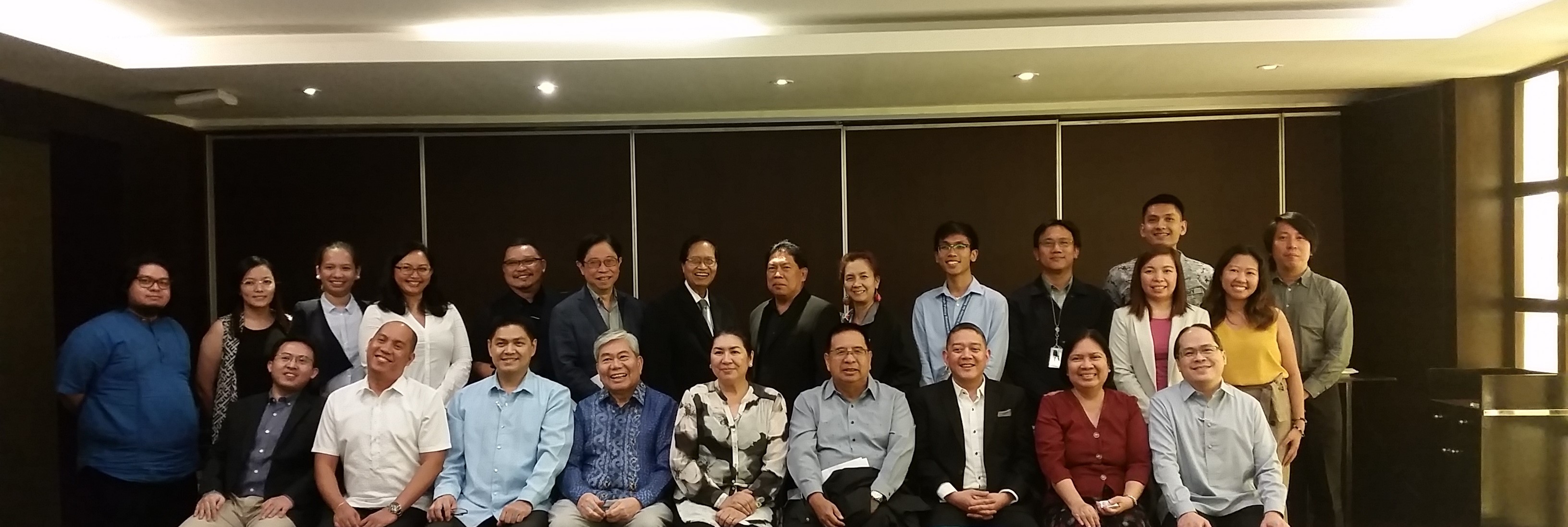
Two speakers shared their expertise on the BIMP-EAGA revival. Dr. Fermin Adriano, who served as Senior Adviser for Mindanao Programs of the World Bank and in various other capacities in the Philippine government, discussed the political economy of the BIMP-EAGA. He also looked at possible areas of cooperation with Beijing in infrastructure, agriculture/agribusiness development, sea transport/shipping, eco-tourism, information communication technology, and finance and banking. He sees Sabah and Kalimantan as potential routes going to China that the Philippines should access. Adriano further provided a comparison between BIMP-EAGA and the Greater Mekong Subregion in terms of geography, economic growth, national government participation, and what industries have thrived.
Pathways holds second Track Two Observer Discussion Forum

Asia Pacific Pathways to Progress Foundation, Inc. (Pathways) held the second Track Two Observer (TTO) Discussion Forum last April 3, 2019, at One Burgundy Plaza, Quezon City. Pathways fellows Dr. Charmaine Willoughby and Dr. Jay Batongbacal were the guest speakers for the afternoon, sharing their insights on recent pressing issues.
The TTO is a network of analysts and an online database which tries to promote better utilization of Track Two expertise focusing on Philippine foreign relations and regional affairs. Through its findings, the TTO aims to identify emerging trends, cutting edge ideas and strategic assessments, and explore possible policy recommendations for the government’s consideration. The TTO Discussion Forum serves as an avenue for the analysts to meet and discuss recent developments, as well as share updates on their Track Two engagements. The forum was attended by 19 member analysts from the academe, government, and private research institutions.
Pathways and UP-CIDS hold roundtable discussion on Indo-Pacific concept
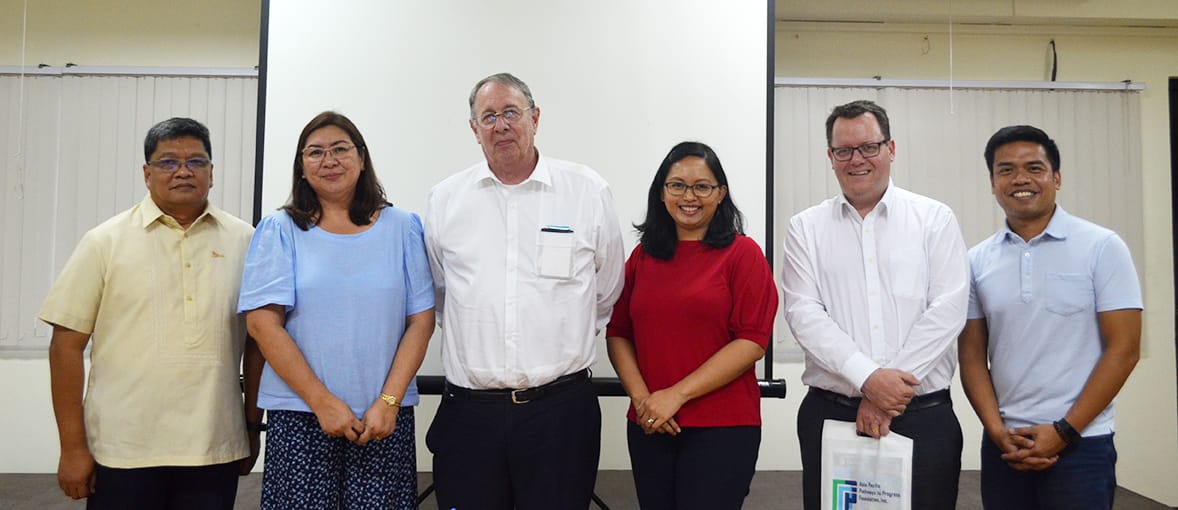
The Asia Pacific Pathways to Progress Foundation Inc. together with the University of the Philippines Center for Integrative and Development Studies (UP-CIDS) hosted a roundtable discussion on the “Dilemmas of the Indo-Pacific” on April 26, 2019. The discussion, moderated by Dr. Charmaine Willoughby, convenor of the APPFI’s Regional Security Architecture Program, examined the United States’ Free and Open Indo-Pacific (FOIP) strategy.
Three resource speakers provided American, Australian, and Filipino perspectives on the FOIP. Prof. William Tow of the Australian National University (ANU) provided a synoptic review of the Trump administration’s policy in the Indo-Pacific and highlighted key developments in international trade, good governance, and geopolitical order-building, which concretize the Indo-Pacific concept. He also tackled catalysts for the FOIP, such as the possibility of an emerging China-containment doctrine by the US, domestic pressures on the Trump administration to have a different foreign policy from Obama, and the complementarity of ideology and geography to operationalize the “America First” rhetoric.
Pathways participates in U.S.-Philippines Bilateral Conference 2019
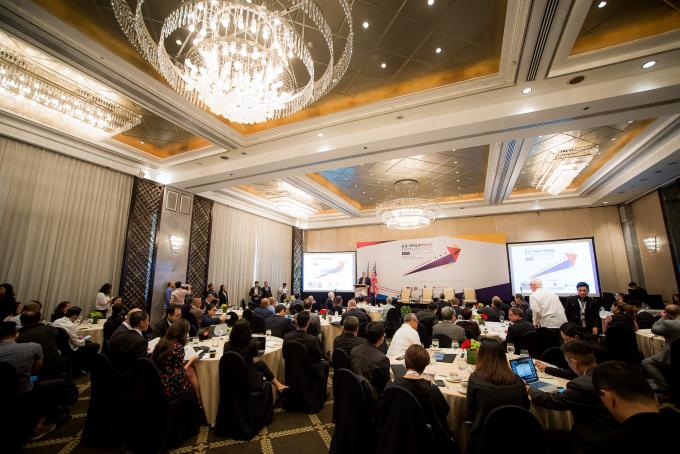
Leading experts of the Asia Pacific Pathways to Progress gave their respective views on the evolving partnership between the U.S. and the Philippines during the conference on “The Future of the Philippine-American Bilateral Relationship” held last 7-8 February 2019 at the Manila Peninsula. The conference, organized by the U.S. Embassy, The Asia Foundation, and the Ateneo de Manila School of Government, covered wide-ranging issues from assessing the status of the U.S.-Philippine Alliance, countering violent extremism, responding to regional challenges, increasing maritime security cooperation, enhancing trade and investment, as well as boosting technology and Innovation. The US government, through its Deputy Assistant State Secretary Walter Douglas, also provided a policy perspective on its Free and Open Indo Pacific Strategy.
A conversation with Southeast Asia expert Dr David Camroux

On 12 February 2019, Pathways was joined by Dr David Camroux, Honorary Senior Research Fellow at SciencesPo, for a conversation on the Association of Southeast Asian Nations (ASEAN) and the Indo-Pacific concept. His visit was part of an EU-funded project titled Competing Regional Integration in Southeast Asia (CRISEA).
Joining the conversation were Dr Aileen Baviera, Dr Gilbert Llanto, Dr Charmaine Willoughby; Mark Manantan; and Grace Guiang.
Pathways, Global Times discuss Philippines-China ties, Filipino perceptions toward its neighbor
On February 26, Pathways met with a Global Times delegation led by the editor-in-chief Hu Xijin to exchange views about Philippines-China relations. The discussion focused on the South China Sea disputes, infrastructure cooperation, and the prevalence of online gaming in the Philippines, whose target market are Chinese mainlanders. The negative perception towards misbehavior of some Chinese in the Philippines was also brought up during the exchanges. The delegation was eager to learn about how Filipinos see China given the above mentioned developments in their relations.

Indian think tank follows Act East policy, builds bridges in the Philippines
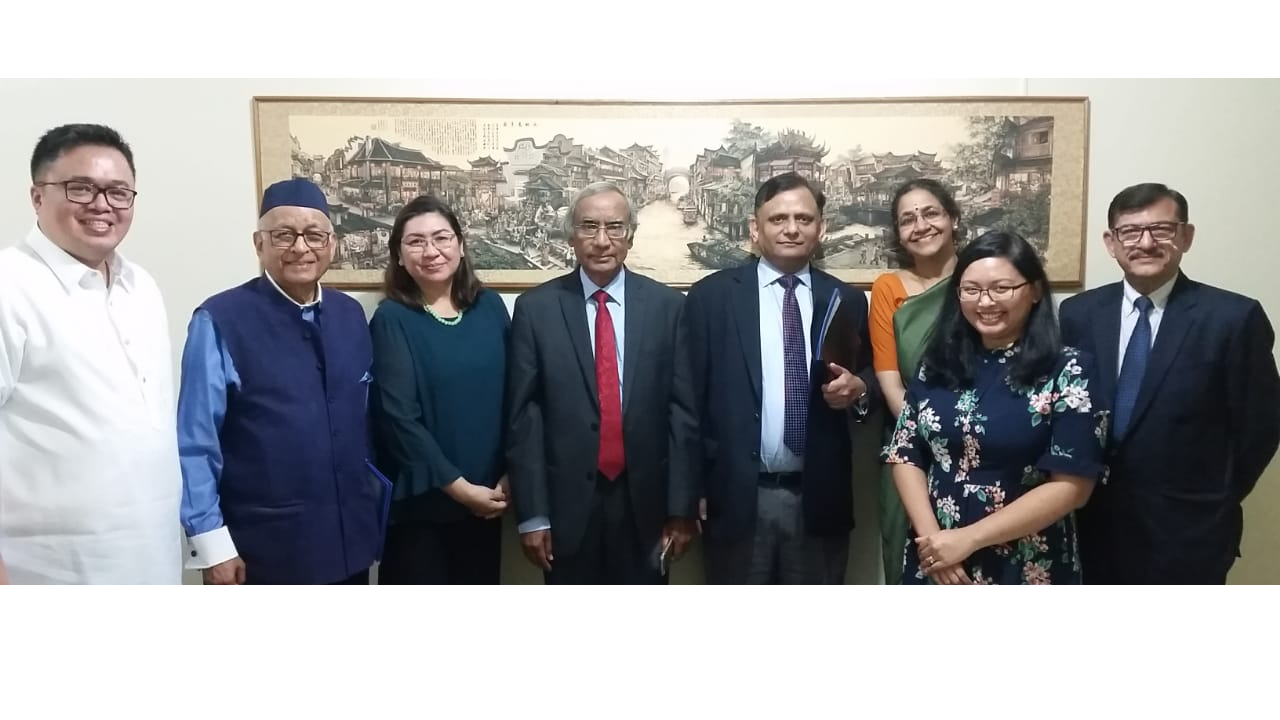
On March 11, delegates from Kalinga International Foundation, led by their Chairman, Ambassador Lalit Mansingh, met with Pathways to discuss India's bilateral ties with Southeast Asian countries and the changing geopolitical landscape in the Indo-Pacific. The discussion mostly focused on the possibilities and opportunities of enhanced interactions and partnerships between India and the Philippines, security issues in the South China Sea and the Indian Ocean, and better cooperation and interaction between Indian and Southeast Asian think tanks. The delegates were very eager to listen to Philippine perspectives on the region's security issues, and offered insights based on similar issues from the Indian subcontinent region. They also shared their perspectives on India's increased engagement with Southeast Asia and the United States' Indo-Pacific Strategy. Another topic of discussion was the revival of the Quadrilateral Security Dialogue, or the Quad 2.0, an informal strategic dialogue between the United States, Japan, Australia, and India. Widely viewed as a response to the increasing economic and military power of China in the region, the Quad was revived in 2017 after China's recent actions in the South China Sea. Despite being revived in the sidelines of the 2017 ASEAN Summits in Manila, ASEAN has not articulated a unified position on the revival of the Quad and its role in Southeast Asia, nor has the Philippines released its position on the matter.
Davao gets special focus in Chinese research
Pathways hosted a discussion on Davao’s economic planning and development between Mindanao Development Expert Dr. Fermin Adriano and a delegation from Shanghai Academy of Social Sciences (SASS) on March 12, 2019.
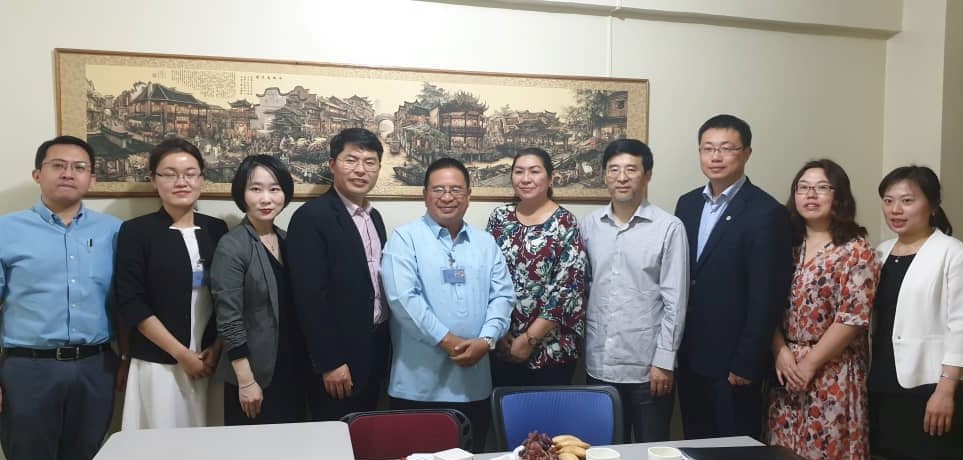
Dr. Adriano provided a historical background on economic and infrastructure development in Mindanao. The discussion revolved around Philippine economic trends; the competitive advantages of the southern island; growth corridors; and the state of agriculture, manufacturing, and services. The reasons for lagging both for Mindanao and the country as a whole, were presented, including high costs of power and the lack of qualified human resources hindering absorption of investments and new technologies.
The second largest among think tanks in China, SASS is among the top ranking think tanks in terms of influence according to recent studies in China. The members of the multidisciplinary delegation were Li Kaisheng, Tu Qiyu, Su Ning, Li Na, Zhang Xiaodi, and Zou Yi.
Japan defense expert Masuda visits Pathways
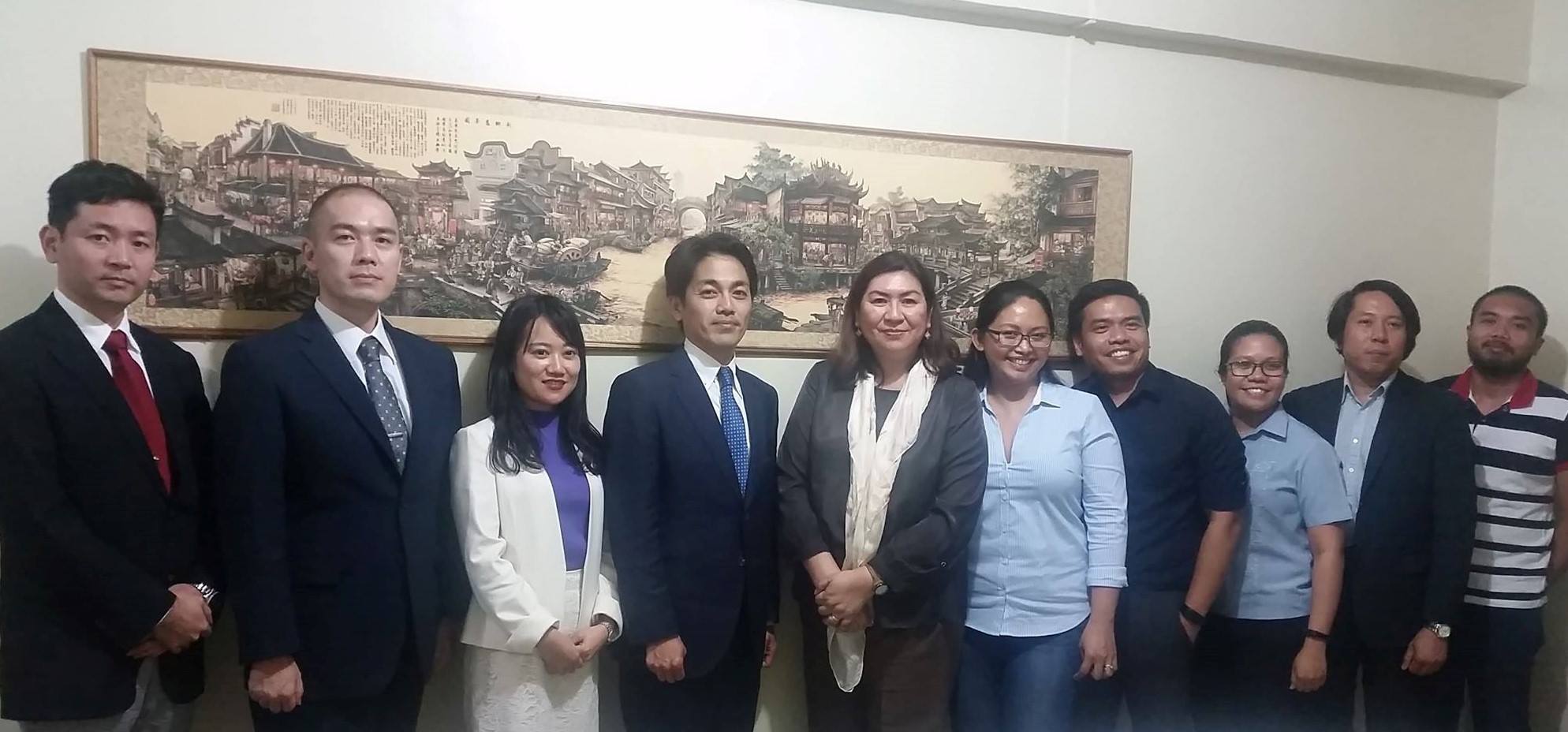
Prof. Masayuki Masuda, Senior Fellow at the National Institute for Defense Studies (NIDS), visited Pathways on 21 March 2019 for an exchange of views on Indo Pacific security, alliances, and the Philippines-Japan relations. Joining him were Research Fellow Yuko Manabe also from NIDS, and Colonel Kazunobu Akutsu and Commander Michinori Fukuda from the Defense Attache’s office, Embassy of Japan in the Philippines.
Singapore Workshop: Is this the End of America’s Asian Alliances?
Leading experts of the Asia Pacific Pathways to Progress contributed their views on the nature and trajectory of alliances in the conference on “Alliances Adrift: Is this the End of America’s Asian Alliances?” The event was held on 23 April 2019 in Singapore and was organized by the Coral Bell School of Asia Pacific Affairs of the Australian National University, in collaboration with the S. Rajaratnam School of International Studies of the Nanyang Technological University, the Hankuk University of Foreign Studies and sponsored by the Korea Foundation. The conference covered the historical and theoretical foundations of the San Francisco System, the challenges that the hub-and-spokes model faces in East and Southeast Asia, and the prospects of the survival of the alliance system.

Dr Charmaine Willoughby attends conference on the Baltic Region and Southeast Asia in Hanoi
Research Fellow Dr Charmaine Willoughby attended the international conference on Cooperation and Integration in the Baltic Region and Southeast Asia: A Comparative Perspective. The conference addressed common security issues that both regions face, including both traditional and non-traditional areas, as well as the ways to deepen multilateral cooperation and regional integration. The conference featured perspectives from delegates and scholars from Asia and Europe.

Dr Willoughby presented a paper on the United States’ Indo-Pacific Strategy and its implications to Southeast Asia and ASEAN. She argued that the conceptualization of the Free and Open Indo-Pacific should be made less ambiguous and more operational. Some recommendations she forwarded included broadening the scope of the strategy and improving the US’ bilateral relations via the creation of functional minilateral arrangements.
Commentaries
ASEAN’s Regional Connectivity – External Partner Engagement Exposing Internal Governance Constraints
Lukas Maximilian Müller, 07 January 2019
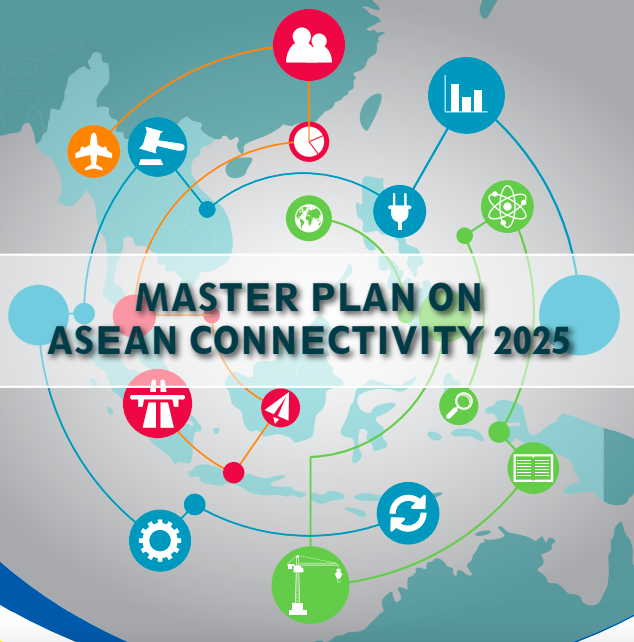
It has now been a little more than two years since the ASEAN Master Plan on Connectivity 2025 was introduced. It seemed that, following years of calls for increased investment, ASEAN as an organization has recognized the need for regional infrastructure to enable closer economic and social linkages between the member states. The current plan, an update over the 2011 version, has a firm footing in global connectivity trends and a more focused agenda. Compared to the first plan, which had a bit of a wish-list character, the current connectivity plan has been well-received, particularly by ASEAN’s external partners.
Learning to make Cities Smarter: Lessons from China for the Philippines
Matthew Ordoñez, 20 January 2019
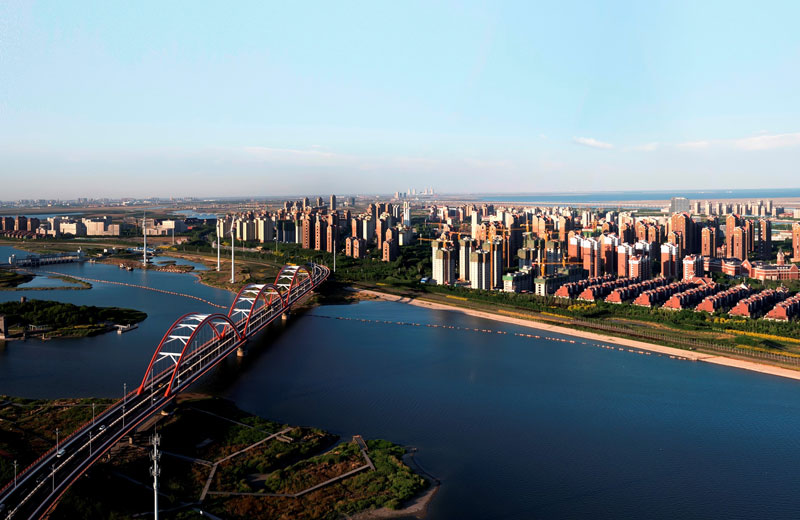
The world’s cities are getting smarter. The dual trends of steady urbanization and digitization have changed the way major cities are being governed and managed. Such trends are embodied in the concept of the “smart city,” a model of using information technology in managing ever-growing urban environments across the globe.
The Philippines definitely has intentions of following this trend. Some of the major plans for smart cities include the “City of Pearl” (407 hectares) in Manila, Clark Green City (9450 Hectares) in Tarlac, and Quezon City, with city hall announcing their plans after hosting the 2018 Smart City summit. Whether these plans can solve the problems of Philippine cities remains to be a valid debate.
Historic global compact raises hopes for migrants
Lucio Blanco Pitlo III, 06 February 2019

Last December, 164 countries approved a landmark accord in Marrakesh, Morocco that may lay the roadmap for governing migration. The Global Compact for Safe, Orderly and Regular Migration (GCM) is an intergovernmental agreement that tries to encompass all aspects of migration. The first of its kind, this instrument promises to improve the plight of migrants, but its non-binding nature and non-adherence of key migrant recipient states like the United States and Australia could wither initial gains. For migrant labor-sending countries like the Philippines, the pact was seen as a big boon.
Building Maritime Security from Land: A Multi-Faceted Approach
Asyura Salleh, 02 April 2019
The waters of Southeast Asia stretch 6,500 kilometers across a dozen seas, many archipelagic waterways, and thousands of islands. Yet, the region’s narrow focus on major power tensions in areas such as the South China Sea has prevented a wider understanding of the roots of maritime instability in the region. As the main drivers of maritime insecurity remain unaddressed, organized political violence in the regional waters continues to endanger the transit of goods and people along these waterways. Stable Seas, a program of the One Earth Future Foundation, provides a unique approach that studies linkages between nine critical maritime issues to allow for a more holistic and multi-faceted understanding of Southeast Asia’s maritime security.

Can the Philippines forgo Chinese investment for maritime security?
Aileen S.P. Baviera, 16 March 2019
In January 2019, South Korea’s Hanjin Heavy Industries and Construction closed down its shipbuilding operations in the Philippines. Hanjin represented the single biggest case of foreign investment in the country when it entered in 2006. Its ship exports have helped put the Philippines on the map as the world’s fifth-largest shipbuilding country. The Hanjin shipyard alone sits on a 300 hectare area of Subic that was the United States’ biggest naval base in the Western Pacific before it became a free-port zone in 1992. At its peak, Hanjin employed a 33,000-strong workforce.

The closure of the South Korean shipyard raises the question for the Duterte government of what to do with the remaining 3,000 workers who lost their jobs. The company currently also owes creditors a total of US$1.3 billion (of which US$400 million is owed to five Philippine banks).
Be careful what you wish for: a historical retrospective on the Philippines-US Mutual Defense Treaty
Dr. Gregory H. Winger, 25 February 2019

Aristotle advised that if we are to understand anything we must “observe its beginning and its development.” Unfortunately, amid the tumult surrounding Secretary Lorenzana’s pledge to review the Mutual Defense Treaty (MDT), an appreciation for the historic origins and development of the U.S.-Philippine alliance has been sadly absent. Although clarifying the rights and obligations contained within the MDT represents a worthwhile undertaking, attempting to do so while ignoring the treaty’s historic context and evolution would be futile. To that end, it is useful to look at the specific charges currently levelled against the MDT by its critics and to identify the historical background of these contentions. This perspective provides both a deeper understanding of U.S. policy towards the Philippines and also helps contextualize the current dispute.
Amidst US-China Rivalry, U.S. Reassurance Raises Philippine Worries
Lucio Blanco Pitlo III, 02 April 2019

In the past, concern about getting entangled in a conflict over competing territorial and maritime claims in the South China Sea restrained U.S. support for its oldest treaty ally in Asia. Now, a long overdue reassurance raises Philippine worries about getting involved in a brewing great power competition.
Fresh from his trip to Hanoi for the second US-North Korea Summit, Secretary of State Mike Pompeo flew to Manila (February 28-March 1) to meet President Rodrigo Duterte and his counterpart, Foreign Affairs Secretary Teodoro Locsin Jr. The proposed review of the 1951 Mutual Defense Treaty (MDT) called for by Defense Secretary Delfin Lorenzana was high on the agenda for the two-day visit. Considered the bedrock of the alliance, the review surprised many in the U.S. that may have expected an improvement in ties after the return of the three Balangiga bells last December. Manila’s rapprochement with Beijing, and increasing Chinese investments in critical Philippine infrastructure, also generated apprehension in Washington.
US-China Rivalry and the Philippines’ National Security Strategy
Mico A. Galang, 03 January 2019
The year 2018 witnessed an intensification of the geopolitical rivalry in the Indo-Asia-Pacific region, particularly between the United States (US) and China. In January 2018, the Pentagon released the summary of the classified National Defense Strategy (NDS). Along with Russia, the NDS identified China as one of the “revisionist powers.” Overall, the NDS provides that Beijing’s objective is to “reorder the Indo-Pacific region to [its] advantage,” as well as the “displacement of the [US] to achieve global preeminence in the future.” Thus far, China appears to be taking geopolitical steps to achieve these strategic objectives.
Despite an international ruling that largely debunked China’s maritime claims, Beijing continued with beefing up its artificial islands in the South China Sea (SCS). This year alone, China installed, among others, anti-ship cruise missiles and surface to-air missile systems, as well as jamming equipment. In May 2018, China landed bombers in the Paracels, the range of which includes practically the entire Philippines. Washington responded by conducting more freedom of navigation operations (FONOPs) in the region. In September 2018, the US and China were nearly in a literal collision when the guided-missile destroyer USS Decatur, conducting a FONOP, was approached by a PRC Luyang destroyer and “conducted a series of increasingly aggressive maneuvers accompanied by warnings for [USS Decatur] to depart the area.” The US further added that the PRC destroyer “approached within 45 yards of [USS Decatur’s] bow, after which [USS Decatur] maneuvered to prevent a collision.” On the economic front, Washington and Beijing are engulfed in a trade war.
Factors Shaping Philippines-North Korea Relations
Aaron Jed Rabena, 20 February 2019
The Republic of the Philippines’ relations with North Korea are influenced by four critical factors: political alignment with the United States, realpolitik, international norms, and risks to Philippine national security and interests. In other words, historical, functional, normative, and strategic factors have been of greater or lesser significance at different junctures in the nearly twenty-year formal Philippines-North Korea relationship.
The initial interaction between the Philippines and North Korea occurred as state-to-state conflict due to the Korean War (1950-1953), which was a byproduct of the Cold War. The Philippines, being a liberal democracy, showed the flag and sent boots on the ground by deploying the “Philippine Expeditionary Force to Korea” (PEFTOK) to join the United Nations (UN) coalition forces under the leadership and operational command of the United States to defend democratic South Korea against an invasion by the Communist North.
It was in the 1970s when Manila, in spite of its different political system and values vis-à-vis Pyongyang, negotiated the establishment of diplomatic relations. The negotiation of official ties was not unprecedented because the Philippines had done the same with the Soviet Union and the Eastern European Socialist Bloc in the 1970s where Manila’s intent was to diversify economic partners.
How Taiwan stands up to China through soft power
Mark Bryan Manantan, 05 March 2019

In his speech commemorating the 40th anniversary of the so-called Message to Compatriots in Taiwan, Chinese President Xi Jinping made it loud and clear: China will pursue a one-country, two systems approach to achieve peaceful unification.
But a warning came with Xi’s pledge to explore a broad range of democratic consultations in cross-strait relations: The use of force remains a viable option for China. This is particularly directed toward advocates for Taiwan’s independence and separatists who threaten the implosion of the leader’s plans for national rejuvenation.
Amid Beijing’s firm and hardline resolve to employ force if necessary, Taiwanese President Tsai Ing-Wen remained unfazed. Her response rejected China’s one country, two systems approach, slapping Beijing with a reality it must accept: that the Republic of China (Taiwan) is a democracy built by its 23 million people who believe in liberal values. Tsai even dared China to embrace democracy.

